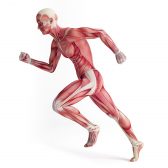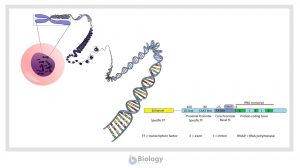Definition
”noun, plural: muscles’
An organ made up of muscle tissues, or the tissue itself, enabling contraction or tension in an animal body to effect movement or locomotion
Supplement
Muscles are a specialized body part that produces movement or locomotion in animals. The muscle is comprised (largely) of muscle tissues. A muscle tissue is made up of muscle cells, which in turn, consist of several myofibrils. The myofibril is the contractile thread of a muscle. Each myofibril is comprised of repeating sections of sarcomere. The sarcomere is composed of long fibrous proteins that slide past each other resulting in the appearance of dark and light bands under the microscope. The sarcomere is regarded as the basic structural unit of a muscle.
Animal muscles are of three different types: (1) skeletal muscles, (2) smooth muscles, and (3) cardiac muscles. The skeletal muscles may be classified into fast twitch fibers and slow twitch fibers. The human body has approximately 650 skeletal muscles.1 The smooth muscles in turn may be subdivided into single-unit (unitary) smooth muscles and multiunit smooth muscles. The cardiac muscles are the muscles of the heart. These three types of muscles make up the muscular system.
Word origin: Latin mūsculus (a muscle, literally, little mouse)
See also:
- muscle tissue
- myocyte
- myofibril
- sarcomere
- muscular system
Related term(s):
Reference(s):
1 Poole, RM, ed. (1986). The Incredible Machine. Washington, DC: National Geographic Society. pp. 307–311.







